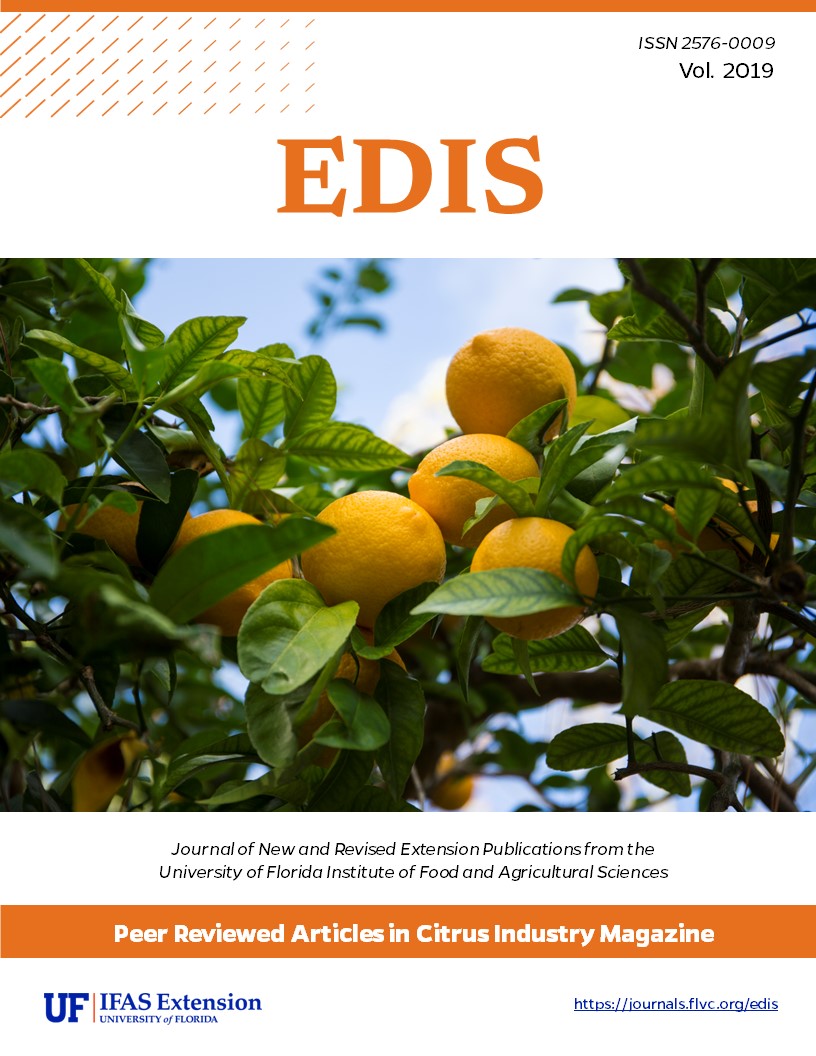Abstract
Citrus growers facing issues from several new diseases and pests. For example, Florida citrus growers, currently struggling with citrus greening (huanglongbing, HLB) and citrus canker diseases, now face a new economic threat from citrus black spot (CBS) disease. The CBS disease reduces the ability of Florida growers to export or move fresh fruit both nationally and internationally. On another example, the Asian citrus psyllid (ACP) is a key pest of citrus in Florida due of its role as a vector of citrus huanglongbing (HLB). There is no known cure for HLB, but vector management has been shown to be critical both for slowing spread of the disease as well as attenuating symptoms in infected trees. Therefore, monitoring the ACP population is an essential component of ACP management, both for application of economic thresholds as well as assessing effectiveness of control actions. For this purpose, the tap sample has proved invaluable and has been adopted by citrus growers. Hence, a more rapid and accurate tool for accomplishing these important pest and disease management goals is needed.
Furthermore, almost all of the agrochemicals (e.g. pesticides) applied in specialty crop production are made uniformly with conventional spraying equipment despite that fact that pathogens distribution is typically patchy. Uniform applications result in the use of agrochemicals where no diseases, weeds or pests occur. This unnecessary use of agrochemicals leads to increased costs, risk of crop damage, environmental pollution and contamination of the edible products.
The rapid development of new technologies and the changing landscape of the online world (e.g., Internet of Things - IoT, cloud-based solutions) provide a unique opportunity for developing intelligent agricultural systems for precision applications. Technological advances in machine vision, artificial intelligence (AI) and machine learning (ML) enabled the development of intelligent agricultural technologies for precision applications. These technologies can optimize weed, pest, and disease identification and management. In this article, several example of emerging technologies in citrus are presented.
References
Ampatzidis Y., and Partel V., 2019. UAV-based High Throughput Phenotyping in Citrus Utilizing Multispectral Imaging and Artificial Intelligence. Remote Sensing, 11(4), 410; doi: 10.3390/rs11040410.
Ampatzidis Y., Stansly P.A., and Partel V.H., 2018. Automated systems and methods for monitoring and mapping insects in orchards. U.S. provisional patent application No. 62/696,089.
Arevalo, H.A., Stansly, P.A., Fraulo A., Qureshi, J., Buss L.J., 2012. Tap sampling for Asian citrus psyllid (ACP) field sheet. SWFREC – IFAS, Immokalee, Florida, USA.

